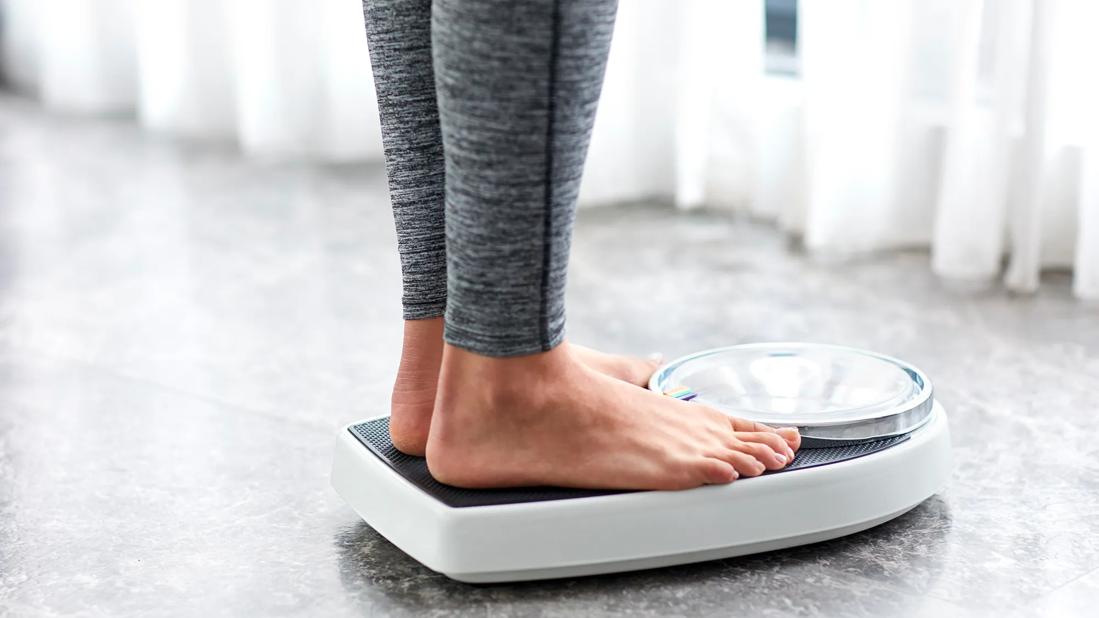Slight increases are somewhat common from either the medication or changed habits

Image content: This image is available to view online.
View image online (https://assets.clevelandclinic.org/transform/ac71b514-e2ae-4968-afa9-f433a919e162/weight-gain-641963334)
Person's feet and legs on a scale
Will taking an antidepressant make me gain weight? That’s a question heard daily by psychiatric pharmacist Josh Maline, PharmD, BCPP — and the answer isn’t a clear-cut “yes” or “no.”
Advertisement
Cleveland Clinic is a non-profit academic medical center. Advertising on our site helps support our mission. We do not endorse non-Cleveland Clinic products or services. Policy
“Weight changes can happen when people start taking antidepressants, but it’s not the case for everyone,” says Dr. Maline. “It depends on a number of different factors.”
So, let’s take a closer look.
Video content: This video is available to watch online.
View video online (https://cdnapisec.kaltura.com/p/2207941/sp/220794100/playManifest/entryId/1_bok7fdxs/flavorId/1_5f3sgelj/format/url/protocol/https/a.mp4)
Weight gain is a common potential side effect of taking antidepressants. A 2024 study shows that increases are typically minor, averaging about 3 pounds within two years of starting a medication.
“But I’ve talked with patients who have gained significantly more weight on antidepressant medication, too,” Dr. Maline notes. “It truly does vary person to person.”
Unless your weight increase is quick and dramatic (like putting on 5-plus pounds within a week), Dr. Maline recommends not being preoccupied with slightly higher numbers that might appear on your scale.
“Try to focus on how you’re feeling and if the medication is helping address your symptoms of depression or anxiety,” he recommends. “Weight is not something to overly fixate on.”
But if a weight change is causing you concern, talk to your healthcare provider. “Do not just stop taking your medication or make changes to it,” he urges. “There are options that can be considered.”
There’s no single answer to why someone might gain weight after starting antidepressants.
Advertisement
The medication itself may play a role, as research shows some antidepressants are more associated with weight increase than others, explains Dr. Maline. But other factors could drive the change, too.
The previously mentioned study on antidepressants and weight change looked at common first-line treatment medications. It used the most commonly prescribed antidepressant — sertraline (Zoloft®) — as a baseline.
On average, people who took Zoloft gained 3.2 pounds in 24 months. Numbers were similar for people taking fluoxetine (Prozac®). Both are types of SSRIs (selective serotonin reuptake inhibitors).
Average weight gain and chances of more excessive weight gain were higher for those taking SSRIs such as:
More weight gain was also seen in those taking:
Going in the opposite direction, weight gain was lower for those taking:
But again, Dr. Maline emphasizes that results can vary person to person. Medication that adds pounds for one individual may not do so for someone else.
Mental health conditions often affect appetite. “If you’re depressed or anxious, it can change your eating patterns — and that can result in weight loss or gain, depending on how you respond,” explains Dr. Maline.
If your weight is low before you begin treatment, the weight gain that comes with taking an antidepressant may simply be an indicator of improved appetite.
“You may gain weight just by returning to a more typical eating pattern with your improved mood,” he continues. “In a way, it can be a sign that the treatment is working and you’re feeling better.”
It should also be noted that some weight gain is typical as people age, so any changes you see may just be the toll of time.
The same rules for weight management apply to those taking antidepressants and those who aren’t. “Eat a healthier diet, start an exercise routine, take steps to reduce stress and get enough sleep,” advises Dr. Maline.
You may find it easier to adopt lifestyle changes as your emotional state improves while taking an antidepressant. You may feel more energized and up for new challenges.
Again, too, talk to your healthcare provider if you experience rapid or significant weight gain. They may adjust your prescription or suggest trying a different medication to treat your symptoms.
Advertisement
“The ultimate goal is to find a balance where both mental and physical health are supported,” says Dr. Maline.
Advertisement

Sign up for our Health Essentials emails for expert guidance on nutrition, fitness, sleep, skin care and more.
Learn more about our editorial process.
Advertisement
Alcohol is a depressant and can interfere with your sleep, mood and more
Some medications may result in a few lost pounds, but weight gain is far more common
The medications target different chemicals in your brain to improve mood
Both medications are first-line treatments for depression and other mood disorders
A psychiatrist shares tips for going off your depression medication
OTC meds, rest, fluids and an anti-inflammatory diet can help you get through big and small weather changes
Going home isn’t always easy, but there are ways to ease any stress you might feel
Connecting with others, giving back and stepping away from social media can all help you cope
Although it could be used as a moisturizer, this new trend is not recommended
Communicating clear limits helps protect your time, energy and emotional well-being
High cholesterol can be genetic, but testing and treatment can lower your heart disease risk